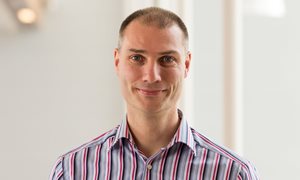
Abstract
Background
In the Netherlands, in 2002, euthanasia became a legitimate medical act, only allowed when the due care criteria and procedural requirements are met. Legally, an Advanced Euthanasia Directive (AED) can replace direct communication if a patient can no longer express his own wishes. In the past decade, an exponential number of persons with dementia (PWDs) share a euthanasia request with their physician. The impact this on physicians, and the consequent support needs, remained unknown. Our objective was to gain more insight into the experiences and needs of Dutch general practitioners and elderly care physicians when handling a euthanasia request from a person with dementia (PWD).
Methods
We performed a qualitative interview study. Participants were recruited via purposive sampling. The interviews were transcribed verbatim, and analyzed using the conventional thematic content analysis.
Results
Eleven general practitioners (GPs) and elderly care physicians with a variety of experience and different attitudes towards euthanasia for PWD were included. Euthanasia requests appeared to have a major impact on physicians. Difficulties they experienced were related to timing, workload, pressure from and expectations of relatives, society's negative view of dementia in combination with the 'right to die' view, the interpretation of the law and AEDs, ethical considerations, and communication with PWD and relatives. To deal with these difficulties, participants need support from colleagues and other professionals. Although elderly care physicians appreciated moral deliberation and support by chaplains, this was hardly mentioned by GPs.
Conclusions
Euthanasia requests in dementia seem to place an ethically and emotionally heavy burden on Dutch GPs and elderly care physicians. The awareness of, and access to, existing and new support mechanisms needs further exploration.
Publication
Euthanasia requests in dementia cases; what are experiences and needs of Dutch physicians? A qualitative interview study.
Schuurmans J, Bouwmeester R, Crombach L, van Rijssel T, Wingens L, Georgieva K, O'Shea N, Vos S, Tilburgs B, Engels Y.
Related news items

More than five million euros for research to improve palliative care Jeroen Hasselaar will lead research project with Horizon grant
15 June 2022 Jeroen Hasselaar will lead a large international research project. With a 5.3 million euro grant from the EU's Horizon program, he and his team want to improve palliative care for cancer patients, together with partners from nine European countries. go to page
Most COVID-19 ICU survivors experience symptoms one year after ICU admission Publication in JAMA
25 January 2022 75% of the COVID-19 survivors who were treated in the Intensive Care Unit (ICU) experience physical, mental and/or cognitive problems one-year post ICU. This shows the large-scale MONITOR-IC study led by Radboudumc. go to page
1.4 million euro to reduce hospital admissions due to medication
7 January 2022 A team of sixteen Dutch hospitals received a grant of 1.4 million euros from ZonMw. They will investigate whether they can reduce medication related hospital readmissions. go to page
Participating in cancer research among people with intellectual disabilities
30 November 2021 Thanks to the support of the Maarten van der Weijden Foundation research was carried out into the participation of people with intellectual disabilities in (population) screening for cancer. go to page

